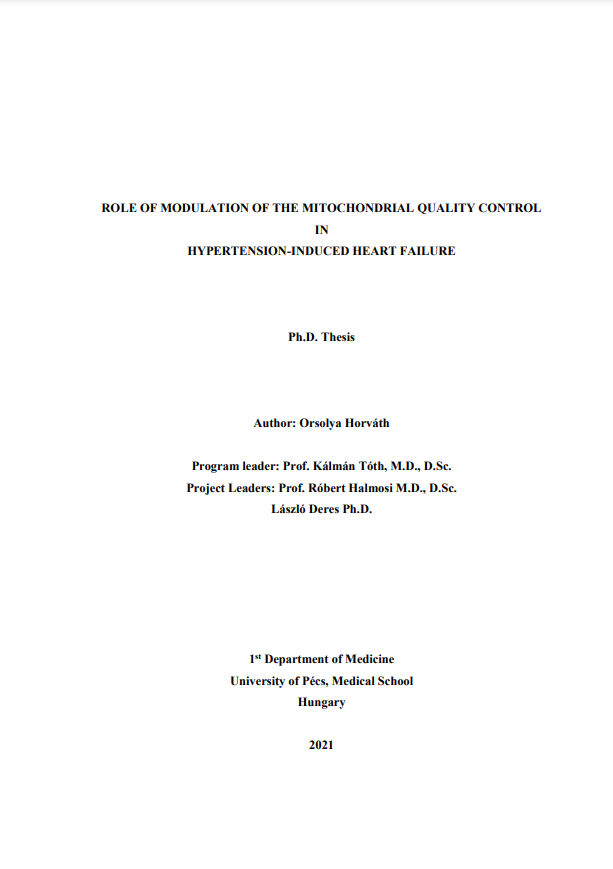Role of modulation of the mitochondrial quality control in hypertension-induced heart failure
Abstract
Heart failure (HF) is a complex clinical syndrome where the functionally or structurally damaged heart
is unable to maintain the proper cardiac output despite the growing number of therapeutic approaches,
moreover the number of hospitalizations for HF as well as the HF associated mortality is increasing,
thereby placing a heavy burden on health services and economy.
Hypertension is the most important risk factor resulting in abnormal loading conditions. Sustained
elevation of blood pressure induces myocardial remodelling, which is characterized by interstitial
fibrosis and cardiomyocyte hypertrophy. These cellular alterations are promoted by oxidative stress and
by the activation of various intracellular signal transduction pathways. Numerous studies have
demonstrated that mitochondria, which are responsible for the cellular energy supply, are also damaged
in hypertension-induced cardiac remodelling and heart failure. Reactive oxygen species (ROS) induced
mitochondrial DNA damage can be found in the background of these injuries and mitochondria
themselves become the main sources of endogenous ROS production. The long-term presence of these
pathophysiological factors can finally lead to heart failure (Fig.1).
Figure 1. The role of oxidative stress in myocardial remodelling at heart failure
Treating heart failure, despite the numerous therapeutic possibilities, appears to be a challenging task
nowadays. The major goal during the treatment is to improve the quality of life and functional capacity
as well as to prevent hospital admissions and to try to reduce mortality. Beta blockers, angiotensinconverting enzyme inhibitors and mineralocorticoid receptor antagonist represent the main groups of
4
therapeutic possibilities. In spite of these approaches, the prognosis of the HF is still poor, and we do
not have a proven beneficial option for the treatment of diastolic HF yet. Therefore, finding novel
therapeutic targets and developing new compounds are extremely important to improve the outcome of
HF in the future.

